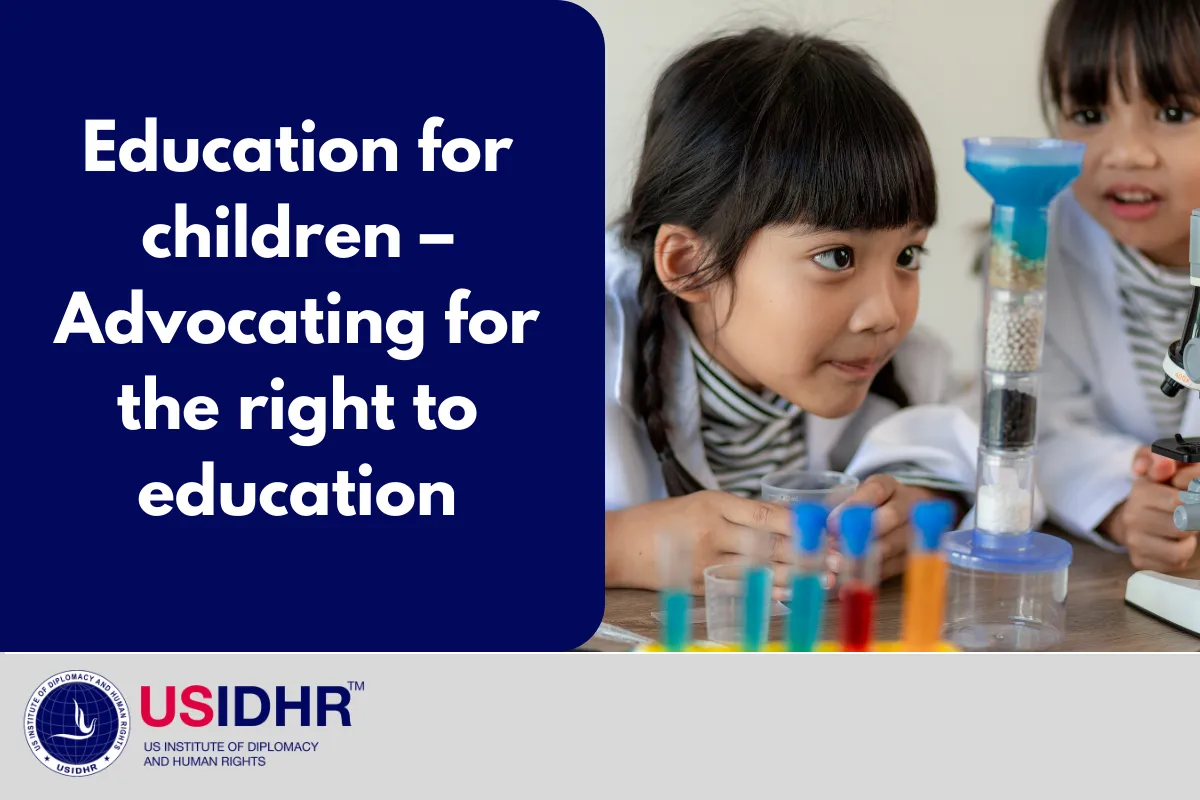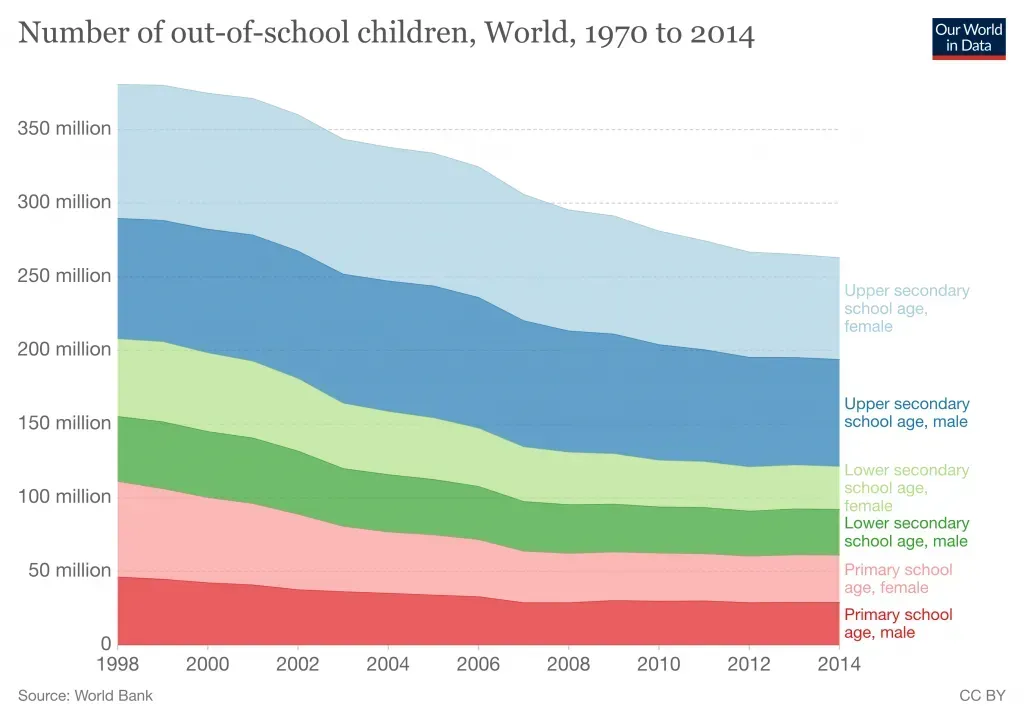
Education for children – Advocating for the right to education
The right to education has been recognized as a human right in a number of international conventions, including the International Covenant on Economic, Social and Cultural Rights which recognizes a right to free, compulsory primary education for all, an obligation to develop secondary education accessible to all, on particular by the progressive introduction of free secondary education, as well as an obligation to develop equitable access to higher education, ideally by the progressive introduction of free higher education.
Children’s right to education is recognized to every child as a legal right on the basis of equal opportunity, as informed by and consistent with the United Nations Convention on the Rights of the Child. When the international standards related to children’s right to education are fully implemented, two things happen. One, children are given the chance to study by guaranteeing access to primary education and availability of school enrollment. Two, parents are also given the right to choose the education they see fit for their children. In addition to awareness of children’s rights to children and to adults, teaching children about their rights has the benefits of improving their awareness of rights in general, making them more respectful of other people’s rights, and empowering them to take action in support of other people’s rights. Knowledge of basic human rights education and the 30 human rights proclaimed by the Universal Declaration of Human Rights was found to have a tremendous positive impact on a child’s development. That’s because human rights teach you not only that you have rights, but also makes you understand that other people have rights too.
No matter the international standards and conventions on the right to education, the status of education around the world is troublesome. According to Our World in Data, 263 million children were not in school in 2014. And unfortunately, the statistics are not improving in 2020. Learning gaps remain high in countries in the sub-Saharan African region where many children are not going to school due to illness, malnutrition, and poverty. Same in countries like Pakistan, where a recent study showed that 2 in 5 Pakistani children over the age of 10 have never attended school.

To bring down that gap, US Institute of Diplomacy and Human Rights, a 501(c)3 non-profit organization headquartered in Washington, DC launched the program “A Chance to Study”. Every year, they focus on a different country to help give a chance to education to children that don’t have the means necessary to enroll or attend school. The program raises funds to help children elementary to high-school age go to school by offering them scholarships and mini-grants to buy uniforms, school supplies, and simply have money to travel to school or for lunch boxes.
In 2020, USIDHR and its team of experts, volunteers and partnering organizations are bringing the Chance to Study program to Pakistan. As shown by statistics, Pakistan is one of the countries in the world in dire need of offering a chance to education to children. While the right to education and compulsory free elementary education is proclaimed in the Constitution of Pakistan, many children are not going to school due to child labor and extreme poverty. Funds will be provided to children from disadvantaged backgrounds so any contribution matters.
To support the Chance to Study program, you can donate on the official Facebook page of USIDHR or on the GoFundme platform. All donations are 100% tax-deductible.
Many organizations around the world focus on the fight against inequalities, injustice and demand for these freedoms. However, a resilient democratic society as we live in nowadays needs more than just fights and finger-pointing. We need solutions.
A world where the right to education is fully implemented and all kids have an equal chance to go to school should not be an idealistic dream. The more we advocate for a chance to education, implement education for all in schools, institutions, and organizations, and promote the Universal Declaration of Human Rights, the more we bring change in the world. As Mahatma Gandhi used to say: “You must be the change you want to see in the world.” And education of all sorts can achieve that.
